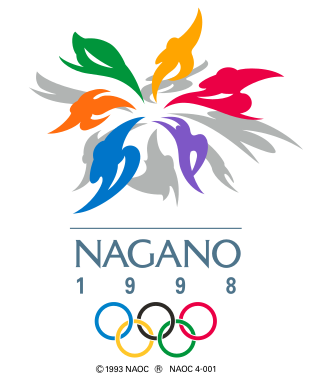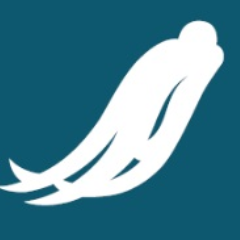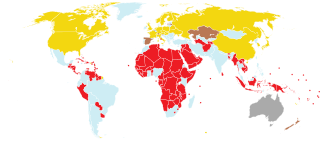
The Winter Olympic Games is a major international multi-sport event held once every four years for sports practiced on snow and ice. The first Winter Olympic Games, the 1924 Winter Olympics, were held in Chamonix, France. The modern Olympic Games were inspired by the ancient Olympic Games, which were held in Olympia, Greece, from 776 BC to 394 AD. The Baron Pierre de Coubertin of France founded the International Olympic Committee (IOC) 1,500 years later in 1894, leading to the first modern Summer Olympic Games in Athens, Greece in 1896. The IOC is the governing body of the Olympic Movement, with the Olympic Charter defining its structure and authority. The original five Winter Olympic Sports were bobsleigh, curling, ice hockey, Nordic skiing, and skating. The Games were held every four years from 1924 to 1936, interrupted in 1940 and 1944 by World War II, and resumed in 1948. Until 1992, the Summer Olympic Games and the Winter Olympic Games were held in the same year. A decision to change this was made in 1986, when during the 91st International Olympic Committee session, IOC members decided to alternate the Summer Olympic Games and the Winter Olympic Games on separate four-year cycles in even-numbered years. Also, at that same congress it was decided that 1992 Winter Olympics would be the last to be held in the same year as the Summer Games and that to change the rotation, the edition that would be held in 1996 would be brought forward by two years, being scheduled to 1994. After this edition, the next one was to be held in 1998 when the 4-year Olympic Cycle resumed.

The 1998 Winter Olympics, officially known as the XVIII Olympic Winter Games and commonly known as Nagano 1998, were a winter multi-sport event held from 7 to 22 February 1998, mainly in Nagano, Nagano Prefecture, Japan, with some events taking place in the nearby mountain communities of Hakuba, Karuizawa, Nozawa Onsen, and Yamanouchi. The city of Nagano had previously been a candidate to host the 1940 Winter Olympics, as well as the 1972 Winter Olympics, but had been eliminated at the national level by Sapporo on both occasions.

The 1984 Winter Olympics, officially known as the XIV Olympic Winter Games and commonly known as Sarajevo '84, were a winter multi-sport event held between 8 and 19 February 1984 in Sarajevo, Yugoslavia. It was the first Winter Olympic Games held in a Slavic language-speaking country, as well as the only Winter Olympics held in a communist country before the 2022 Winter Olympics in Beijing, China. It was the second consecutive Olympic Games held in a communist country, after the 1980 Summer Olympics in Moscow, Russian SFSR, Soviet Union.
The 1972 Winter Olympics, officially the XI Olympic Winter Games and commonly known as Sapporo 1972, were a winter multi-sport event held from February 3 to 13, 1972, in Sapporo, Hokkaido Prefecture, Japan. It was the first Winter Olympic Games to take place outside Europe and North America.

The 1998 Winter Olympics, officially known as the XVIII Olympic Winter Games, was a winter multi-sport event held in Nagano, Japan, from 7 to 22 February 1998. Twenty-four nations earned medals at these Games, and fifteen won at least one gold medal; forty-eight countries left the Olympics without winning a medal. Competitors from Germany earned the highest number of gold medals (12) and the most overall medals (29). With 10 gold medals and 25 overall medals, Norway finished second in both categories. Denmark won its first – and as of 2018 only – Winter Olympics medal, while Bulgaria and the Czech Republic won their first Winter Games gold medals. Azerbaijan, Kenya, Macedonia, Uruguay, and Venezuela competed for the first time, but none of them won a medal.

The 1976 Winter Olympics, officially known as the XII Olympic Winter Games, was a winter multi-sport event held in Innsbruck, Austria, from 4 to 15 February 1976. A total of 1,123 athletes representing 37 National Olympic Committees (NOC) participated in 37 events from 10 different sports and disciplines. Two events were contested for the first time: the figure skating discipline of ice dancing, and the men's 1,000 metres in speed skating.

Biathlon at the 1998 Winter Olympics consisted of six biathlon events. They were held at Nozawa Onsen. The events began on 9 February and ended on 21 February 1998.

Luge at the 1998 Winter Olympics consisted of three events at Spiral. The competition took place between 8 and 11 February 1998.

Speed skating at the 1998 Winter Olympics, was held from 8 to 20 February. Ten events were contested at M-Wave. The Netherlands dominated the Nagano speed skating events, winning five gold medals and eleven medals overall, their highest total in any Winter games up until that point. Bart Veldkamp's bronze medal was the first in speed skating for Belgium, and the first at the Winter Games for the country in 50 years. Lyudmila Prokasheva's bronze medal for Kazakhstan was that country's first in the sport as well, and Prokasheva became the first woman from Kazakhstan to earn an Olympic medal.
Alpine Skiing at the 1998 Winter Olympics consisted of ten alpine skiing events. The speed events were held at Hakuba and the technical events at Shiga Kogen. There were a number of race postponements due to weather; the events began on 10 February and ended on 21 February.

Short track speed skating at the 1998 Winter Olympics was held from 17 to 21 February. Six events were contested at the White Ring.

Pierre Fritz Lueders is a Canadian Olympic, world and World Cup champion bobsledder who competed from 1990 to 2010. He piloted both two-man and four-man bobsleigh, retiring after the 2010 Winter Olympics. He was named to Canada's Sports Hall of Fame in 2012.
Bobsleigh at the 1988 Winter Olympics consisted of two events, at Canada Olympic Park. The competition took place between February 20 and February 28, 1988.
Bobsleigh at the 1992 Winter Olympics consisted of two events, at La Plagne. The competition took place between February 15 and February 22, 1992.

Canada has competed at every Winter Olympic Games, and has won at least one medal each time. By total medals, the country's best performance was in the 2018 Winter Olympic Games where Canadian athletes won 29 medals. Canada set a new record for most gold medals won by a country in a single Winter Olympics with 14 at the 2010 Winter Olympics in Vancouver, Canada. This achievement surpassed the previous record of 13 gold medals held by the Soviet Union (1976) and Norway (2002). Both Germany and Norway matched the record total of 14 gold medals in Pyeongchang in 2018. This record has since been surpassed by Norway with 16 at the 2022 Winter Olympics.
Bobsleigh at the 1968 Winter Olympics consisted of two events, at L'Alpe d'Huez. The competition took place between 8 and 11 February 1968.
Gerda Weissensteiner OMRI is an Italian luger and bobsleigh pilot who competed from the late 1980s to 2006. Competing in six Winter Olympics, she won the gold medal in the women's singles luge event at the 1994 Winter Olympics in Lillehammer, and together with Jennifer Isacco she won the bronze in Turin in the two-woman bobsleigh at the 2006 Winter Olympics. She was the first Italian sportsperson to win Olympic medals in two disciplines.

Trinidad and Tobago sent a delegation to compete at the 1998 Winter Olympics in Nagano, Japan from 7–22 February 1998. This was the nation's second time appearing at a Winter Olympic Games. The delegation to Nagano consisted of two bobsledders; Gregory Sun and Curtis Harry. In the two-man competition, they finished in 32nd place.

The 2018 Winter Olympics medal table is a list of National Olympic Committees ranked by the number of medals won during the 2018 Winter Olympics, held in Pyeongchang County, South Korea, from 9–25 February 2018. The games featured 102 events in 15 sports, making it the first Winter Olympics to surpass 100 medal events. Four new disciplines in existing sports were introduced to the Winter Olympic program in Pyeongchang, including big air snowboarding, mixed doubles curling, mass start speed skating, and mixed team alpine skiing.














